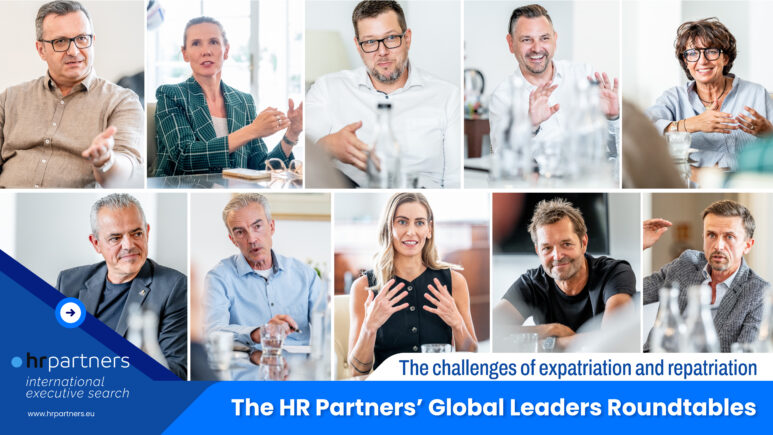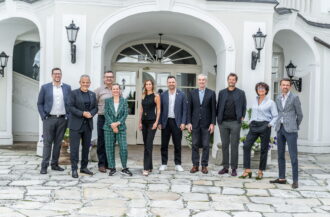Global mobility is a top priority of international businesses – but also one of the riskiest bets companies make. Too often, leaders are sent abroad only to come home underutilized, disconnected, or ready to leave. Nearly 40% of repatriates leave their job within a year of returning. So how can companies turn repatriation into a springboard, not a setback? How can they help returnees pass on what they’ve learned abroad? And how do we ensure mobility fuels – not drains – the leadership pipeline? These were some of the questions we explored at the September 11th HR Partners’ Global Leaders Roundtable at the Mozart Hotel in Prague. Around the table: a powerhouse of leaders who have all been expatriated and repatriated at some stage of their career – some multiple times across continents. Joining us were Petra Masinova, Diplomat, First Secretary of the Embassy of the Czech Republic in Paris; Gabriela Zahoranska, Executive Director with Slovak Pro, Karin Strakova, Founder of Resoneti and former Regional HR Director with Generali; Zdenek Rihacek, Regional Senior Managing Director Central Europe South at Procter & Gamble; Karel Foltyn, Chief People Officer at Rohlik, Martin Dlouhy, Non-Executive Director and ex-Chief Strategy Officer of Rohlik; Bohdan Lenek, Head of Business Unit Operations Controlling at SEB, Radek Janda, CFO of Air Dispatch and Rudy Kozak, ex-General Manager of Astellas Pharma CZ/SK. The big takeaway? Global mobility is more than moving people around the map. It’s about turning experience into growth – for individuals and for the organization. When repatriation is handled well, it doesn’t close a chapter – it opens the next one.












